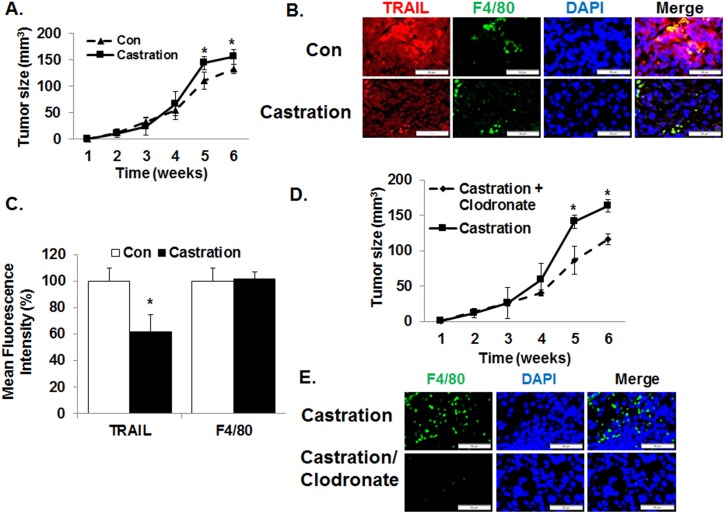Figure 5.
Macrophages enhance tumor growth of androgen-resistant prostate cancer cells following castration in vivo. (A) To determine the impact of androgens on macrophages in vivo, C57B/6 mice with established androgen-resistant TRAMP-C2 xenograft were castrated and tumor volume was measured weekly. The results demonstrated that castration increased tumor growth. n = 5 per group. (B) At the end of 6 wk, all tumor xenografts were harvested and analyzed. Immunofluorescence microscopy demonstrated a significant increase in the protein levels of TRAIL within the tumor xenografts following castration. However, no detectable effect was seen on the magnitude of macrophage infiltration (F4/80). (C) To quantify the immunofluorescence, mean fluorescence intensity was measured by using ImageJ V1.50i software. TRAIL fluorescence intensity but not that of F4/80 significantly increased with castration. (D) When macrophage was removed with intraperitoneal injections of clodronate liposome every 3 d following castration, the protumorigenic effect of castration in mice with TRAMP-C2 xenograft was reversed. Control mice were injected with PBS liposome. (E) Administration of clodronate-liposome decreased macrophage infiltration in TRAMP-C2 xenografts. Again, the mean fluorescence intensity levels of TRAIL and F4/80 were quantified by using ImageJ V1.50i software. Values are means ± SEM. n = 5 per group. *P < 0.05.

